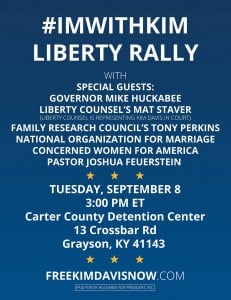(On Tuesday, December 10, I was invited to give the chapel address at Colorado Christian University. This is a version of my remarks.)
What is the most important question you can ask?
I’ve been asked some pretty good ones:
Will you take this woman to be your lawfully wedded wife?
That’s pretty high on my list.
Are you going to help us?
Chuck Colson asked me that question a couple of years ago when I took my current job with the Manhattan Declaration, which was a pretty cool.
Sir, do you know why I pulled you over?
I’ve been asked that one too many times.
Life is full of important questions. And college is especially fertile ground for asking and answering big questions like:
What are you majoring in?
What are you going to do when you graduate?
Should you marry that girl?
These are all important questions. Still, there’s one question that stands out from all the rest. It was first asked of me by a chapel speaker while I was in college, and it changed everything about my college experience and the life I’ve pursued since.
This morning, in my first – and maybe my only – chapel talk, I want to ask it of you.
During these, perhaps the most formative years of your young lives, the question is this:
What kind of person are you becoming?
Note what I said: “What kind of person are you becoming?”
Not “What are you becoming?” in terms of a job.
Not “What are you doing to prepare yourself for the future?”
“What kind of person are you becoming?” It is a question about character.
As Arthur Holmes, the professor who first asked the question of me put it, “What kind of person are you becoming?” is a question of “the inner disposition of the heart.”
In other words, the kind of person you are comes from the inside out. It is demonstrated through your habits.
The kind of person you are is not often the result of a carefully considered choice in a specific circumstance. It is rarely so rational.
No, as you train your character – as you subdue your body to your will – it becomes your slave. It responds to you immediately, mindlessly.
Character is instinctual.
Have you ever watched a professional basketball player shoot free-throws? The best, like Steve Nash, who shot over 90% from the line season after season, make it look effortless.
They make free throws look so easy. But have you every tried to make free throws? It’s not easy! Not unless you’ve spent hours and hours repeating the same motion over and over until your body simply can’t do it any way but perfectly. That kind of skill takes years to develop.
It all starts in the brain. Your brain is this dense, interconnected network of tissue and synapses that fire messages back and forth millions of times each second. When you learn something, you are trailblazing a new synaptic pathway.
Like any path, the more you track back and forth along it, the deeper and more permanent the trail becomes. This is called “synaptic plasticity”.
When Steve Nash steps to the line to shoot a free throw, his brain is accessing a well-worn path. He may as well be walking to his mailbox.
But just as repetition establishes a synaptic pathway, neglect allows it to fade. Like any path, a synaptic pathway can become lost and inaccessible.
The same is true of character development.
Listen to what Paul says in his first letter to the church at Corinth:
Every athlete exercises self-control in all things. They do it to receive a perishable wreath, but we an imperishable. So I do not run aimlessly; I do no box as one beating the air. But I discipline my body and keep it under control, lest after preaching to others I myself should be disqualified.
The kind of person you become won’t occur overnight. It is the accumulation of years and years of repeatedly willing your heart in the right direction.
As I was preparing for this talk I had this thought…
Many churches use a liturgy to guide their worship. Many of these are very old. The official liturgy of the Church of England has been essentially the same since 1662! Other churches use different versions, but the idea is the same: You follow a calendar and repeat the same worship day after day, week after week, year after year.
Obviously, knowledge of neuroscience was pretty limited 350 years ago. Yet those Anglicans seemed to know what they were doing. Perhaps they knew that over time, through repetition, the act of worship could become entrenched in our minds, such that worshipping God becomes like second nature.
Did they realize that, through worship, one is physically transformed into a worshipper?
What kind of person are you becoming?
Answering this naturally leads to another question:
What kind of person should you become?
Like any athlete – or artist, teacher, lawyer, architect, accountant or anything – your goal is to become an expert in your craft.
For everyone in this room, your craft is Christlikeness. The kind of person you are becoming should be like Christ.
Genesis tells us that from the beginning we have been created in the image of God.
2 Corinthians 3:18 says, “We are being transformed into Christ’s likeness.”
Romans 8:29 says God “predestined us to be conformed to the likeness of his son.”
Writer Jerry Bridges sums it well: “Christlikeness is God’s goal for all who trust in Christ, and that should be our goal also.”
To get there – like any athlete or artist or whatever – you have to practice.
You have to develop the pathways in your mind such that it becomes yourcharacter to respond to everyday situations and surprises in life with love, joy, peace, patience, kindness, goodness, faithfulness, gentleness, and self-control.
These are fruits of the spirit you all know. I know you’ve heard them a million times. Maybe you’re humming the song to yourself right now. (There’s a synaptic pathway for you!)
Don’t look past these just because they’re known. Double-down on them. For “by their fruit you will recognize them.”
But that list isn’t exhaustive. So, if I may, let me give you another Christ-like attribute that seems to get less attention, but is critical in our time.
As you catalog the qualities of the kind of person you want to become, consider courage. For Christ was courageous.
Remember when Jesus makes his declarative decent into Jerusalem riding on the back of a donkey? He heads first to the Temple, where he sees what has become of His house.
Jesus is filled with righteous anger. In this, the last week of his life, he spends his time clearing the temple of the money-changers and merchants profiteering at the expense of the poor in a broken religious system.
That kind of conviction takes courage.
Encountering a demon-possessed man face-to-face took courage.
Going toe-to-toe with Satan, and turning down his offer of all the kingdoms of the world for just one gesture of subservience took courage.
Walking to Golgotha to die on a cross for you took courage.
If the kind of person you are becoming is anything like Jesus, you will be courageous, “For God has not given us a spirit of timidity, but of power and love and discipline.”
I recently heard a theologian say, “Jesus has enough secret agents.” As you depart from this place and engage the world outside, there will be many opportunities to show your stripes. There are still money-changers in the temple.
They are the pastors who teach that God wants nothing more than to make you healthy and wealthy.
They are the priests who say that Jesus didn’t have to die as an atonement for sin; that Easter is merely the celebration of selflessness, and the memorial of a regrettable, unnecessary act of violence.
They are the critic arguing that if Christians just stopped talking about homosexuality the world would stop hating us so much.
They are the ones who say the fight for the life of the unborn has gone as far as it will go, and we shouldn’t be “single-issue voters.”
They are the ones who shrug off concerns for religious freedom, viewing them as overwrought and unnecessary.
Each of these is an alluring temptation. Each is a lie. Confronting and correcting false teachers in the church is the responsibility of mature believers who know the Truth. Throughout the Epistles, Paul offers instructions regarding false teachers:
…stay there in Ephesus so that you may command certain men not to teach false doctrines any longer nor devote themselves to myths and endless genealogies. These promote controversies rather than God’s work–which is by faith. The goal of this command is love, which comes from a pure heart and a good conscience and a sincere faith. Some have wandered away from these and turned to meaningless talk. They want to be teachers of the law, but they do not know what they are talking about our what they so confidently affirm.” (1 Tim. 1:3-7)
Pay attention to the middle of that passage: “the goal of this command is love.” Paul is explaining that truth and love are never opposites.
Preach the word; be prepared in season and out of season; correct, rebuke and encourage–with great patience and careful instruction. For the time will come when men will not put up with sound doctrine. Instead, to suit their own desires, they will gather around them a great number of teachers to say what their itching ears want to hear. They will turn their ears away from the truth and turn aside to myths. But you, keep you head in all situations, endure hardship, do the work of an evangelist, discharge all the duties of your ministry” (2 Tim. 4:2-5).
Again, I want to draw your attention to the middle of this passage: Paul describes men teaching things that suit their own desires, things “their itching ears want to hear.” Does this sound familiar?
Ours is a generation known for its charity and acceptance of differences, both virtuous traits. I think there is a lot to admire about our generation, and I am the last person who wants to stand up here and criticize you all. You have been criticized enough.
However – and I say this as one of you – ours is also a generation that sometimes forgets that Truth and Love are never at odds. We forget that it is no act of charity to allow your loved one to remain mired in sin. If we truly love someone, we must desire them to live in the light of what is true, and good, and beautiful.
What kind of person are you becoming?
What habits are you engraining in your character?
What virtues are you etching on your heart?
Now is the time to take this question seriously.
I got into student affairs because I experienced the formative influence of my Christian college, and I wanted to be a part of creating that experience for others. Colorado Christian University is the rare sort of place that will help you develop yourself into the right kind of person. The kind of person you will be long after you leave this place.
But it doesn’t happen passively.
Being on campus won’t do it anymore than attending a basketball game will help your jump shot. If becoming a Christ-like person is your goal, put in the hours. If you do the work, you will see the results.
One last point, and then I’ll be done:
What kind of person are you becoming? Note the tense of the question: present tense. You are a work in progress.
Only one man ever achieved perfection in this life. You won’t. But you are called to do the work anyway, relying on the grace of God to carry you forward. And if you do, you’ll find success, and be on your way towards becoming the person God created you to be.















